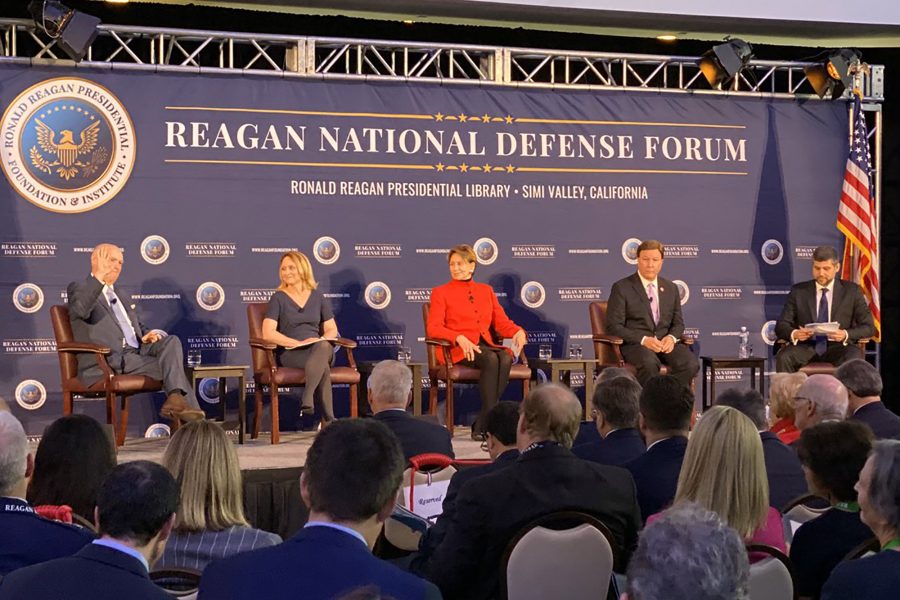SIMI VALLEY, Calif. — Senate and House conferees have reached an agreement on the fiscal 2020 National Defense Authorization Act, with a vote expected on Dec. 9, key lawmakers said.
Rep. Mike Rogers (R-Ala.) outlined the schedule Dec. 7 at the Reagan National Defense Forum here, but stopped short of detailing the plan for creating an independent Space Force, although the structure of the new service has been “agreed upon for a couple months.”
Conferees will sign the bill on the afternoon of Dec. 9, and it will be filed later that day. The House is expected to hold a floor vote on Dec. 11, Rogers said.
Rep. Mac Thornberry (R-Texas) said earlier on Dec. 7, “We have reached agreement” on the bill, but he declined to offer details.
Rep. Adam Smith (D-Wash.) said the final product will show that many different constituencies were able to come together for a bill that is “good for the country.”
“We got it done, we got a good bill,” he said.
The bill, when announced, will outline the lawmakers’ concern that in creating a new Space Force there should not be a new, huge bureaucracy. Instead, the Pentagon must maximize efficiency while “minimizing the amount of money spent,” Smith said. The conferees worked in a bipartisan way to “keep it under control” and not give the Pentagon a “blank check,” he said.
Defense Secretary Mark Esper, speaking at the same forum, thanked lawmakers for agreeing on the bill, adding that it is essential the NDAA fully authorize the creation of the Space Force.
The conference had struggled to find agreement on the bill, with split opinions on issues such as the Space Force, using military funds to build a wall on the southern border, among other issues.
